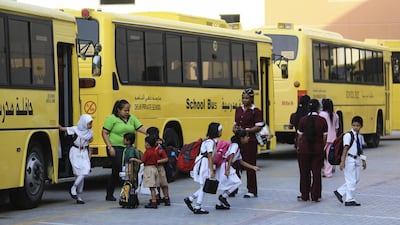The outdated tradition we call the school summer holiday is almost over. Longer than is useful, this protracted vacation has its roots in the agrarian traditions of northern Europe. Most authorities suggest it goes back to the days when the majority of us were still connected to the land; when planting and harvest time dictated the flow of our lives. We have, however, had an industrial and information revolution since then, so why has this throwback to the days of ploughs and pitchforks persisted?
There is no evidence that the protracted break improves academic performance. If anything, the opposite is true. Nations with shorter holidays and longer school years tend to do better on international comparison tests. A study undertaken at the London School of Economics, published in The Economic Journal, found that a short-lived policy to reduce the school year in West Germany resulted in a 25 per cent increase in grade repetition due to academic failure.
In particular, there is substantial evidence that the long summer away from schools and colleges leads to a decrease in learning and a significant decline in academic skills and knowledge levels over the course of the holidays. For example, a study published last year in the journal Frontiers in Public Health documents a significant decline in spelling ability among five to 10-year-olds after a seven-week summer break. This summertime regression also appears to be selective, hitting the least gifted children and those from lower socio-economic backgrounds hardest.
A minority of children with relatively affluent and academically inclined parents might have summer holidays that include educationally enriching activities, such as trips to the cultural capitals of the world, soaking in millennia of art, history and heritage.
Others with resources and opportunity might enrol in edifying summer courses. Unfortunately, many children are left to languish, spending the best part of the holiday in front of vegetative technology: video games, social media and binge-watching TV series.
_____________________
Read more:
Lifestyle: beat summer boredom with these activities
Manar Al Hinai: some tips on how to spend the slow summer months
'I studied all summer and it paid off when I won the World Scholar's Cup'
_____________________
This is not a new issue. We have been lamenting summer learning loss and the length of the school summer holiday for decades. Nobody, however, seems to want to take any action. Former US president Barack Obama described the traditional school day and school year as outdated and inadequate for the demands of 21st century life. Yet still it is the norm.
One reason for the durability of this tradition is that nobody wants to be remembered as the grinch that stole summer. The idea of a long summer holiday is also profoundly ingrained and perhaps those with the potential to be disruptors don't think us capable of shaking free from its shackles.
Yet to reclaim some of this time could have a hugely positive impact. Headteachers traditionally grumble about not having enough hours in the day or days in the term to fit everything in.
_____________________
Read more from Justin Thomas:
Home is not just bricks and mortar – it's intrinsic to who we are
What happens when amateurs misuse mental health terms?
Forget the decade of deceit – we are heading for a millennium of mistrust
_____________________
The reclamation of summer could be a time when UAE schools focus on those things that often get bumped, sacrificed or scheduled at the same time as fun or recreational activities. Perhaps we could have an Arabic language summer school or programmes focusing on the social and emotional competencies that often get sidelined in favour of “sensible” subjects.
Within higher education, many universities have already introduced a summer semester. In the UK, for example, Buckingham University, the UK’s first private university, allows students to complete bachelor’s degrees in two years instead of the traditional three. This potentially equates to students paying less in fees and rent and graduating to enter the job market sooner, all of which is in part facilitated by not having protracted holidays. On some three-year degree programmes, students can spend about half of it on holiday.
If we are not going to shorten the school summer holiday, can we at least shift it to the winter?
Some families might complain that they use the extended break to return to their countries of origin and that July and August are the best time to return. However, no time is perfect for everyone and families from Australia, for example, might prefer a longer winter break.
The school summer holiday originates in nations where summers are generally temperate and pleasant, rather like the UAE’s winters. With an extended holiday in December or January, outdoor activity becomes an option and the chance of elevated vitamin D levels would at least offer some pay-off for a decline in winter learning.
We talk a lot about innovation, thinking differently and changing the rules of the game. Yet we remain tethered to this anachronistic idea of a long summer holiday at the worst climatic time of the UAE year. Let’s be bold and break with tradition.
Dr Justin Thomas is professor of psychology at Zayed University


